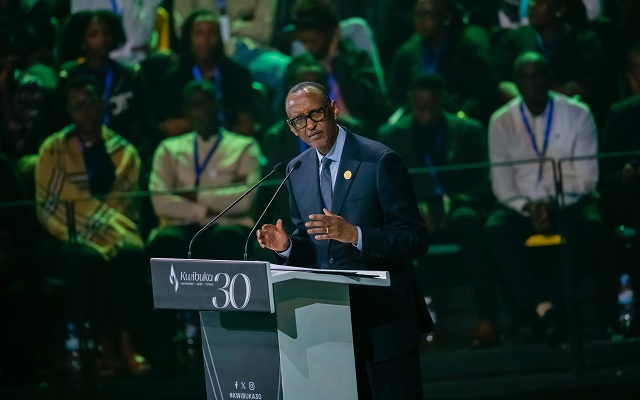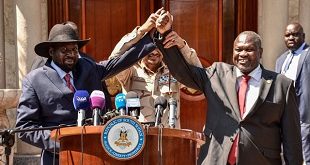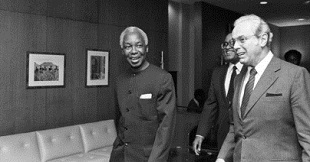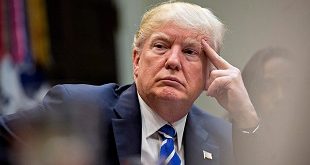
How this small and poor country in Africa that should be irrelevant has become a beacon of hope
THE LAST WORD | Andrew M. Mwenda | Last Sunday, Rwanda commemorated 30 years since the genocide against the Tutsi. I was in Kigali to attend the colorful commemoration that was attended by a large variety of people from all over the world. President Jo Biden sent former President Bill Clinton to represent him. Former French president, Nicolas Sarkozy was there. Former South African president, Thabo Mbeki, was there and former prime minister of Ethiopia, Haile Mariam. Cyril Ramaphosa and his articulate foreign minister were there. The list of leaders, celebrities, diplomats etc. at the event is too long to fit here.
I think the genocide in Rwanda is the most horrific mass slaughter in history. This is not just because of the number of those killed (one million), the methods employed (machetes) or the swiftness of it (100 days). It is largely because the 1994 genocide was up-close and personal. All genocides in history have been organised by the state and executed by a disciplined arm (or associated arm) of it. In Nazi Germany, it was the SS, a specialised armed group of the Nazi party. In Kenya, Algeria, Armenia, Namibia, etc. it was the army. In the USA, Canada, Australia and other settler colonies, the genocide was executed by state sponsored militias, most death a result starvation, hunger and disease lasting generations to complete.
In Rwanda, however, although the genocide was organised by the state, supported by the army and a state organised militia, the Interahamwe, most of the mass slaughter was carried out by ordinary people. This was a popular and democratic genocide. And it was up-close and highly personal: father killed wife and children, teacher killed students, priest killed flock, doctor killed patients, servant killed master, friend killed friend, neighbour killed neighbour, etc. I have spent years trying to wrap my mind around this madness and found it difficult to comprehend its full meaning.
Yet 30 years later, this is not an article about that horrific event. This article is a celebration of the Rwandan spirit, the ability of its people to get out of this madness and build a harmonious society where killer and victim and their families live together, work together, travel together, eat together, pray together, lend each other money and tools. How did they pull it off? The Rwanda miracle is not a miracle ordained by God. It is a miracle resulting from the choices and decisions made by its leaders.
I have spent the last six months reading every piece of writing that was done on Rwanda in 1994. Almost without exception, the most respected scholars, diplomats, experts (and “experts”), politicians, statesmen, etc. all said Hutu and Tutsi could not live together. Who could not believe them? No one who had witnessed this tragedy could imagine otherwise. Because the genocide was democratic, the RPF inherited a criminal population. How, then, do you get killer and victim to live in the same village without igniting another cycle of violence? How could you stabilise such a country.
I am not a believer in the “great man of history” thesis. Yet in Rwanda, my convictions get challenged. Leadership has been the fount and matrix of its success. Without the actions, decision and choices that its leaders made; the compromises, concessions and accommodations they were willing to painfully accept, it is inconceivable that the Rwandan state, economy and society would have been rebuilt. President Paul Kagame personally and RPF and RDF organisationally stand tall in this success. It was also possible because RPF identified partners outside itself who, out of strategic calculation, were willing to work with them to rebuild the country.
All too often, when talking about post genocide Rwanda, we talk about the rapid pace of economic growth, the skyscrapers and manufacturing and assembly plants, the well-lit roads and clean streets, well pruned flower gardens in public spaces, innovations in ICT, medical insurance and free universal education, low levels of corruption, effective administrative systems etc. as symbols of the success of the post genocide state, economy and society of Rwanda. These are important. But they are dwarfed by the decisions and actions at the level of society that have made former killers live and work and eat in harmony with their victims.
What helped? The RPF fought in a resource scarce environment: there were no rich gold and diamond deposits to mine and make money easily to finance the struggle. There was no foreign power with deep pockets to bankroll the struggle the way the CIA did in Mozambique and Angola. All guerrilla movements have succeeded because they enjoyed local support: from China to Cuba, Vietnam to Uganda, Algeria to Nicaragua. The RPF fought in areas where the local population was hostile to its cause.
When there are rich minerals or large sums of cash from a generous foreign power, opportunists with little commitment to the political objectives of the struggle flood the organisation looking for a quick payoff. These, Jeremy Weinstein has argued, easily “crowd out” high commitment individuals. Without minerals, a foreign financier or even popular support, the chances of success for the RPF were unimaginable. I suspect opportunists looking for a quick payoff were discouraged. Therefore, those deeply committed to it dominated leadership of the organisation.
Rwanda was lucky that Kagame emerged as leader. And because most of the fighters had high levels of commitment to the organisation’s political aims, it was possible for him therefore to build a purposeful organisation. Thus, even though I am conscious not to reduce the history of the RPF and post genocide Rwanda to the biography of Kagame, I also always wonder what would have happened without him personally in charge. Kagame is a tough disciplinarian. His personal discipline and his passion form the central fulcrum around which the struggle for liberation and the post genocide reconstruction and reconciliation has rotated.
Rwanda is a small, poor and geographically isolated country. It should, therefore, be irrelevant in the wider scheme of things. Yet under Kagame, it stands at the cutting edge of almost everything. Hence, from China, India, Turkey to the USA, UK, France, etc., global political leaders, prelates, sports stars, celebrity actors, etc. visit Rwanda and some have acquired its citizenship. When the African Union sought to reform itself, it called upon Kagame to provide leadership. When Mozambique was falling apart, it invited Rwanda. Mali, South Sudan, Central Africa Republic, Darfur and even Uganda have all benefited from Rwanda’s military muscle. Thirty years later, Rwanda is on the roll.
*****

amwenda@independent.co.ug
 The Independent Uganda: You get the Truth we Pay the Price
The Independent Uganda: You get the Truth we Pay the Price



Our Government is almost getting stable but corrupt officials PRIME MINISTER MUMMY ROBINA NABBANJA more so MUNICIPAL COUNCIL Mbale city
As usual Andrew Mwenda rightly lauds the organization and tenacity of the Rwandese leadership. He however chooses to close an eye on the genesis of the RPA that was forged in the juggles of Luwero triangle; skills that the NRA imparted. In his speech, president Kagame cited an ultimatum issued by a french general stopping RPA from seizing Butare, a town in southern Rwanda. He instead ordered the capture of that town regardless. He went on to mention the commander of that force; one Fred Ibingira – a veteran of Luwero who by the tail end of 1985 served as a platoon 2/IC (as narrated by rtd maj. Migadde) but now 4 star general! Indeed at the outbreak of the war in 1994 their mentor Yoweri Museveni had warned the french and the belgians to prepare for a fight “they were some of our best boys” he had then said. The seizure of Butare followed by entire country proved so.
Kagame has tried and done well. However, unlike Julius Nyerere, he has not built institutions that will last beyond him, apart from his family. He doesn’t wish anyone to rule Rwanda apart from he and his son, a situation similar to that of Uganda. Such imposing is bad politics and ruins poor countries in the long run. Okay, let’s go to simple basics. The Tutsi are very few, but now they own major all pillars of Rwanda’s economy. This has not come from mainly hard working or investment, but from selective allocations of economic resources and opportunities to them- a kin to Uganda and Bahima. No Tutsi man can marry a Hutu woman. Really, all millions of Hutu women cannot be that bad or unattractive for no Tutsi man to marry them! This stance stems mainly from Tutsi indoctrination right from childhood- that they are better in all aspects than Hutu and are natural leaders/ rulers. I can go on and on, but basing on some of the simple basics above, it is difficult to see how the Tutsi will let Hutus rule or how majority Hutus will forever stand this if they get an opportunity to redress it. The millions of Hutus that have been killed in Congo, at the hands of the current Rwanda regime and proxies, were not all Entarahamwe or sympathizers, but many were just refugees.The mindset in many Tutsi’s that the Hutu’s are bad and killers, whereas not is bad. To the, Hutu’s killing of their own instills a sense hatred that has a potential boil over at some point. Unlike Andrew, those who predict things from real analysis, but not excitement or emotions or other motives consider such things. The presence of Bill Clinton, S African president etc had nothing much to do with remembering people who were sadly killed in 1994 genocide but more to reign on Rwandan president to stop the war in Congo where millions have also been killed. This is why the South African president plans to come to Uganda in a bid to look into ways of ending human suffering in Eastern Congo.
Dick,
You are looking Rwanda under the mirror of tribalism which is a wrong approach. You could have come up with vivid evidence if you were to confirm that minority Tutsi( who you can not identify) are not hard working but rather own most of the economic share due to their association with regime in power. Secondly, while i believe you can not tell who is a Hutu or Tutsi then you can not know who marries who.